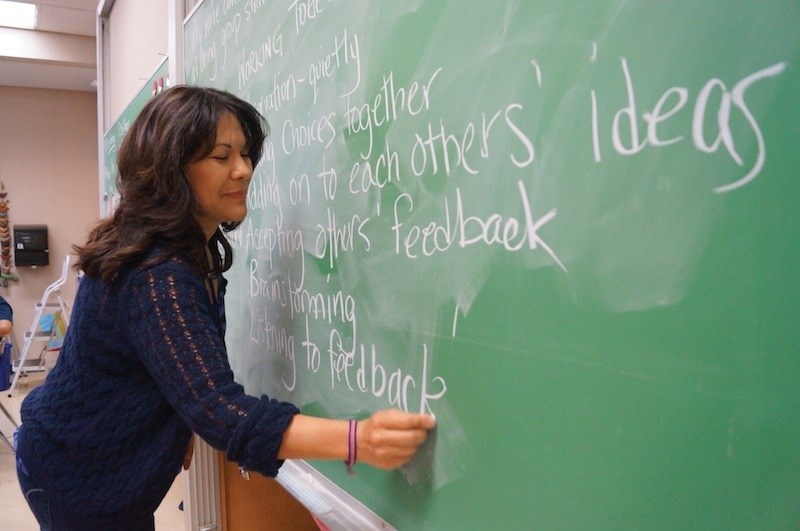Every classroom in Richmond should have a teacher come Tuesday, said Richmond Board of Education Chair Debbie Tablotney this week.
“We expect to be ready to go,” said the head trustee on Wednesday, as districts around B.C. continue to fill teacher vacancies in the wake of a restored collective agreement between the B.C government and teachers that will see fewer students in each classroom and more resource teachers.
But the Richmond School District is still expected to face shortages for substitute teachers this upcoming semester, as recruitment of teachers in Richmond, and across the province, reaches a critical juncture due to unaffordable living standards and low wages, according to the teachers’ union.
In Richmond, the district needed to hire 310 new, full-time teachers this year. The district asked for about $30 million from the B.C. Liberal-dubbed provincial “Classroom Enhancement Fund,” which stems from a Supreme Court of Canada order last November to restore smaller classroom sizes.
Up until a new NDP government, backed by the B.C. Green Party, was confirmed and sworn in, the district had yet to receive full compensation to hire teachers, meaning the hiring process was delayed.
As late as early July, the district was about $6 million shy of funding its new hires.
“You had this short time capsule and you didn’t have enough money,” to hire teachers, explained Richmond Teachers’ Association President Liz Baverstock, who noted at least 30 resource teachers still need to be hired.
Adding to the hiring frenzy problem is the fact veteran teachers across the region are moving between districts as vacancies open up (teachers often live and work in different places because there are normally few vacancies to align the two locations).
“Our needs are changing fairly quickly, as well. And the district is reacting to those needs,” said Baverstock.
And while the district has been on a recruitment blitz, Baverstock and Tablotney expect a short teacher-on-call list this year.
Adding to the new vacancies is the problem that B.C. remains a non-competitive place for teachers to work, according to B.C. Teachers’ Federation President Glen Hansman, who described the teacher-on-call situation in Surrey as a “gong show.”
Hansman said the high cost of housing and relatively low wages, particularly for new teachers, is compounding the vacancy problems.
“The word is out that we’re more or less the worse paid teachers in the country,” said Hansman.
This is despite a new contract signed in 2014 that will expire in 2019.
Hansman said the union had been in talks with past Minister of Education Mike Bernier to devise incentives, via contract amendments, to bring teachers to B.C.
Hansman suggested things such as student loan forgiveness, moving allowances and housing subsidies; as well, the union has pitched to the government to increase starting wages.
For any new teacher coming to Richmond, housing costs will eat into about half of their take-home salary. In rent alone, an older one-bedroom apartment, if available, will start at around $1,100 per month. Newer condos, if not listed on short-term rental sites, advertise for in excess of around $1,500 per month.
In Burkeville, a 400-square-foot laneway “shed” is presently advertised online for $1,000 per month.
“When you have an expensive place to live and don’t have a competitive salary, that makes it difficult,” said Baverstock.



